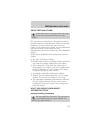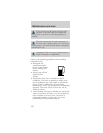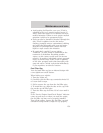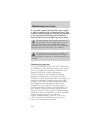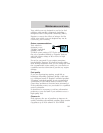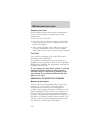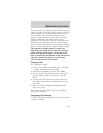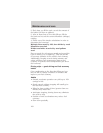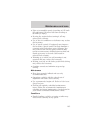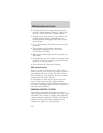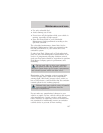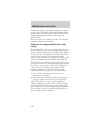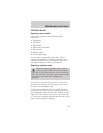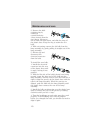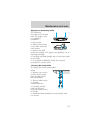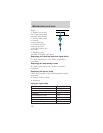
• Drive at reasonable speeds (traveling at 105 km/h
[65 mph] uses 15% more fuel than traveling at
88 km/h [55 mph]).
• Revving the engine before turning it off may
reduce fuel economy.
• Use of the air conditioner or defroster may reduce
fuel economy.
• Use of speed control (if equipped) may improve
fuel economy. Speed control can help maintain a
constant speed and reduce speed changes. You
may want to turn off the speed control in hilly
terrain as unnecessary shifting between third and
fourth gears may occur and could result in
reduced fuel economy.
• Warming up a vehicle on cold mornings is not
required and may reduce fuel economy.
• Resting your foot on the brake pedal while driving
may reduce fuel economy.
• Combine errands and minimize stop-and-go
driving.
Maintenance
• Keep tires properly inflated and use only
recommended size.
• Operating a vehicle with the wheels out of
alignment will reduce fuel economy.
• Use recommended engine oil. Refer to Lubricant
Specifications.
• Perform all regularly scheduled maintenance
items. Follow the recommended maintenance
schedule and owner maintenance checks found in
your vehicle Scheduled Maintenance Guide.
Conditions
• Heavily loading a vehicle or towing a trailer may
reduce fuel economy at any speed.
Maintenance and care
165



